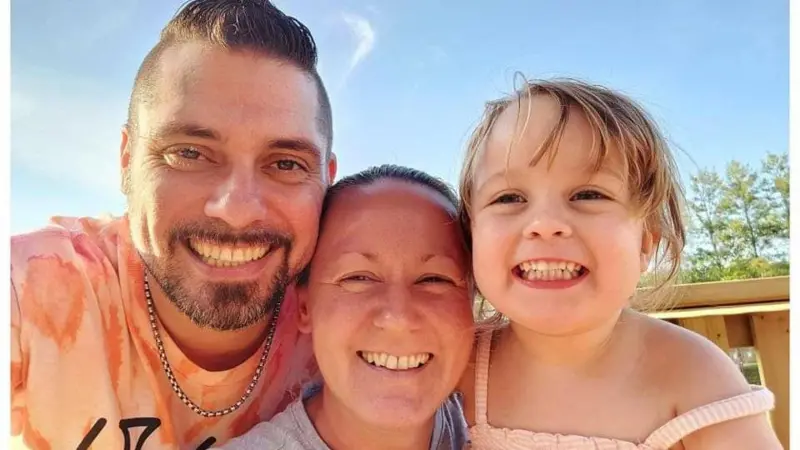A WhatsApp investment scam recently cost Tracey Watkins, a 42-year-old accountant from Cardiff, over £50,000. Her story reveals how quickly fraudsters can gain a victim’s trust and the devastating consequences that follow.
A Promising Start
It all began when a woman from a bogus investment firm reached out to Tracey via WhatsApp. The fraudster presented a tempting opportunity to invest in Bitcoin, promising huge returns. Convinced by the promise of tripling or even quadrupling her money, Tracey initially invested £3,000.
To her delight, the fraudster soon informed her that her investment had surged to £30,000. But when Tracey wanted to withdraw her funds, the fraudster set a trap. Once the fraudster had taken everything, she vanished, leaving Tracey in shock. Her calls went unanswered, and the fraudulent investment firm was nowhere to be found.
A Huge Mistake
Tracey was pressured into installing the AnyDesk app, a remote access software, on her phone. The fraudster claimed it was essential to help her buy Bitcoin and use the Binance crypto platform. However, this app gave the fraudster complete control over her phone and full visibility of her data.
Assured that only the investment details were visible, Tracey continued. What she didn’t know was that the fraudster had access to much more. While still pretending to guide her, he applied for two loans in Tracey’s name, worth £30,000, and maxed out her credit card limits and overdrafts. She also drained Tracey’s daughter’s savings, amounting to a total loss of over £50,000.
A Battle for Compensation
Tracey quickly contacted her bank, hoping to reverse the damage. However, the bank informed her that the authorisation of the transactions came from her device using her details. This, they argued, meant that she had effectively given the fraudster permission to access her money.
The Financial Ombudsman Service, which handles disputes between consumers and financial services, sided with the bank. Tracey’s installation of the AnyDesk app unknowingly gave the fraudster control, making it nearly impossible to recover her lost funds.
Anyone Can Become a Victim
Tracey’s case demonstrates a harsh reality: WhatsApp scams can happen to anyone. It doesn’t matter if you’re an accountant, a lawyer, or a tech-savvy professional. Your level of education, occupation, age, or gender won’t protect you from falling victim to a scam.
Fraudsters are highly skilled manipulators who use sophisticated tactics to exploit even the most cautious individuals. The anonymity of platforms like WhatsApp makes it easy for fraudsters to target anyone, making vigilance essential for everyone. Tracey’s story is a stark reminder that no one is immune to the threat of fraud.
Citizens Advice Issues Warning
Citizens Advice, a UK charity, has seen a worrying increase in investment scams, especially on social media platforms like Facebook. Luke Young, Head of Policy at Citizens Advice, warned that fraudsters often create fake profiles with mutual friends to build a false sense of trust. These scams can happen anywhere, but the deceptive familiarity of social media makes them particularly dangerous.
Young highlighted several key phrases used in investment scams, including “loophole” and “guaranteed returns,” as clear warning signs. If the investment opportunity seems too good to be true, it probably is. “These are people and criminals who are determined to prey on people’s vulnerability and take their money,” he said.
Pressure Tactics
Fraudsters use high-leverage tactics to pressure victims into making hasty decisions. In Tracey’s case, the fraudster used time pressure and technical jargon to convince her to download a remote access app. These tactics make it difficult for even the most cautious individuals to spot the scam before it’s too late. Fraudsters may demand money, request personal information, or insist on secrecy. Any sense of urgency or threat should be treated as a red flag.
Tracey’s bank wasn’t able to recover her money because the transactions were authorised from her device. However, many banks now offer services to quickly respond to fraud. Luke Young recommends using the 159 fraud helpline if you suspect a scam. This service connects customers directly to their banks, enabling them to trace the scam and block transactions immediately.
Staying Vigilant
Tracey’s experience highlights the ongoing threat of investment scams, especially on messaging apps like WhatsApp. As fraudsters become more sophisticated, it’s essential to stay informed and alert. Anyone, regardless of background or knowledge, can fall victim to fraud.
The best defence is to stay vigilant, question anything that seems unusual, and never rush into decisions. Use resources like the 159 helpline to safeguard your finances and report fraud to help combat this growing problem.



